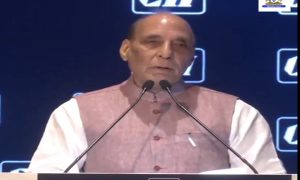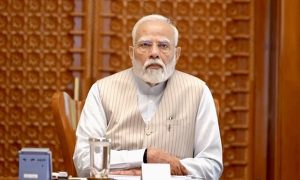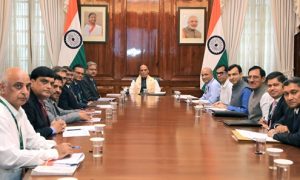The Commerce Ministry aims to safeguard the interests of domestic retailers and protect them from the ‘predatory behaviour’ of the e-commerce industry
The government has revived plans to impose checks on the discounts and cashback deals being offered on shopping websites, among other things, in a bid to make norms for the e-commerce sector more stringent.
The Commerce Ministry aims to safeguard the interests of domestic retailers and protect them from the ‘predatory behaviour’ of the e-commerce industry, sources told The Times of India.
Brick-and-mortar stores are reeling under the competition the face from online shopping portals. This pressure only gets compounded due to factors such as demonetisation and the implementation of GST.
Many bodies like CAIT and Swadeshi Jagran Manch, an RSS affiliate, are fighting on behalf of local shop owners.
Government officials told the paper that this move is aimed at creating a structured policy for the e-commerce sector ahead of the World Trade Organisation’s push to regulate online businesses across the globe, and not impressing local businessmen.
The government had released a draft e-commerce policy in July, which it scrapped within days. It had proposed maximum durations for differential pricing strategies like deep discounting, and also recommended favouring home-grown e-commerce companies and allowing foreign direct investment (FDI) in some foreign firms.
“Globally, we have seen the disappearance of retail stores, be it bookshops or smaller shops. Even large format sector has come under pressure. Once physical stores vanish, the e-commerce players dictate consumer choice on what we eat and wear. We should not allow that to happen,” a source was quoted as saying.
The government believes that giants like Amazon and Alibaba are willing to bleed cash for years till they successfully manage to wipe out all small-scale competition. Moreover, Indian competition laws are not sufficient to tackle this phenomenon, which many call ‘predatory pricing’.
The Indian e-commerce market is growing fast and is expected to reach $200 billion in size by 2028. So an e-commerce policy is imperative and will impact big players from all e-commerce businesses.
The ministry will put out another draft policy in the next few weeks and invite consultations from all stakeholders and departments, including information technology.
The Department of Industrial Policy and Promotion is looking into data localisation and a crackdown against foreign companies selling in India without paying duty, among other elements, in the policy.




























 WhatsApp us
WhatsApp us